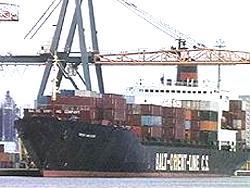Covid Closures in Vietnam Challenge U.S. Companies w/ Production There
New York, NY, October 1, 2021-Manufacturers looking to shift production out of China during the U.S.-China trade war piled into Vietnam, attracted by its low wages and the government’s business-friendly reputation, reports the Wall Street Journal. “But strict lockdowns to contain a Covid-19 wave in the largely unvaccinated country have crippled manufacturing since July, forcing companies such as Nike Inc. and Lululemon Athletica Inc. to shift production to other countries. That is prompting some businesses to rethink their heavy reliance on factories in Vietnam.”
“Nike, which makes around half of its footwear in Vietnam, said last week that it had lost 10 weeks of production there because of factory shutdowns. Those 10 weeks translate to about 100 million pairs of Nike shoes not made, according to BTIG LLC, a U.S. brokerage. Nike now anticipates demand for its products will exceed available supply for the next eight months.
“‘Our experience with Covid-related factory closures suggests that reopening and ramping back to full production scale will take time,’ Matt Friend, Nike’s chief financial officer, said last week. The company said it was maximizing footwear production capacity in other countries and is shifting apparel production out of Vietnam to places such as China.
“A late August survey of nearly 100 representatives of manufacturing sector companies by the American Chamber of Commerce in Vietnam found that one fifth had already moved some production to other countries.
“‘What people are realizing is, whether it be China or Vietnam, or whatever, you can’t have all your eggs in one basket, you can’t be vulnerable to one country from a supply-chain standpoint,’ said Jonathan Moreno, head of the Chamber’s manufacturing and supply-chain task force.
“Western businesses have been left guessing about when Vietnam will lift its manufacturing curbs, which have included requiring factories to have their workers live inside their gates or otherwise be isolated from society, or in some cases, outright factory closures. Several noted in public statements that restrictions were set to last until August or mid-September, only for those dates to pass without any significant shift in policy.
“Vietnam’s government-reassured by its success in containing Covid-19 to around 1,500 cases in 2020, in part through targeted shutdowns that sometimes involved closing off whole villages-moved more slowly than many other countries to acquire vaccines.
“This year Vietnamese authorities, caught off guard by the ferocity of new outbreaks, went back to lockdowns. When it became clear in June and July that the Delta variant of the coronavirus was spreading widely among a population where fewer than 1% were fully vaccinated at the time, the government imposed restrictions that were even stricter than the ones that had been effective before, and which were tougher than some other countries with large manufacturing sectors.
“While it makes sense for Vietnam to play to its strengths, the current problem is especially complex, said Tuong Vu, a political-science professor at the University of Oregon. Lockdowns have been less effective this time because the virus had already spread so widely before they started, and because the Delta variant spreads faster than previous strains, he said.”
Related Topics:RD Weis
